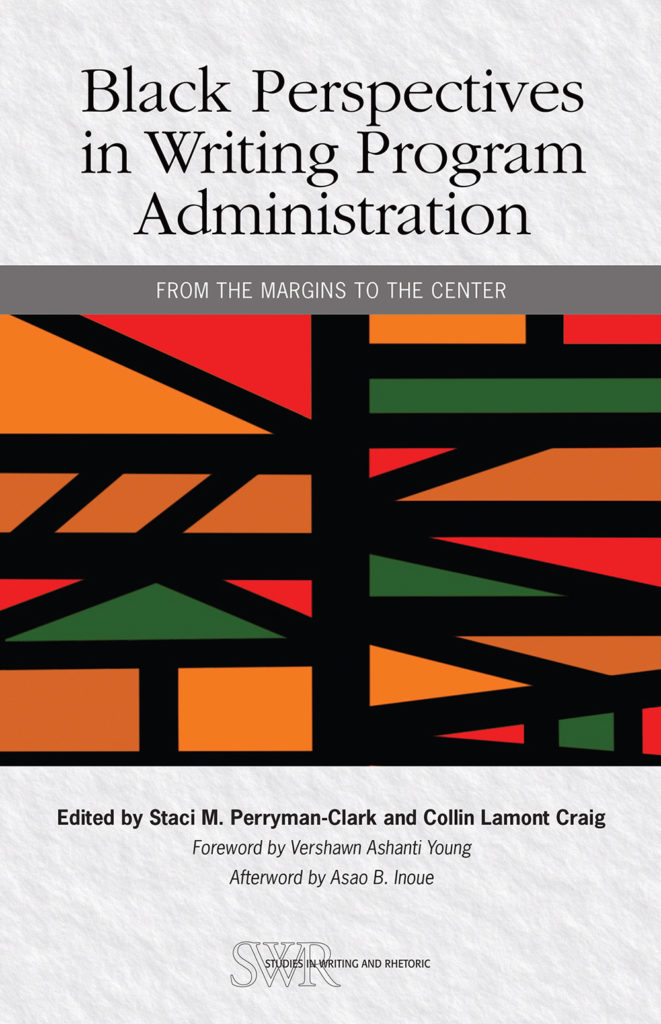Black Perspectives in Writing Program Administration: From the Margins to the Center
Edited by Staci M. Perryman-Clark and Collin Lamont Craig
 This collection centers writing program administration (WPA) discourse as intersectional race work. In this historical moment in public discourse when race and racist logics are no longer sanitized in coded language or veiled political rhetoric, contributors provide examples of how WPA scholars can push back against the ways in which larger, cultural rhetorical projects inform our institutional practices, are coded into administrative agendas, and are reflected in programmatic objectives and interpersonal relations.
This collection centers writing program administration (WPA) discourse as intersectional race work. In this historical moment in public discourse when race and racist logics are no longer sanitized in coded language or veiled political rhetoric, contributors provide examples of how WPA scholars can push back against the ways in which larger, cultural rhetorical projects inform our institutional practices, are coded into administrative agendas, and are reflected in programmatic objectives and interpersonal relations.
Editors Staci M. Perryman-Clark and Collin Lamont Craig have made a space for WPAs of color to cultivate antiracist responses within an Afrocentric framework and to enact socially responsible approaches to program building. This framework also positions WPAs of color to build relationships with allies and create contexts for students and faculty to imagine rhetorics that speak truth to oppressive and divisive ideologies within and beyond the academy, but especially within writing programs.
Contributors share not just experiences of racist microaggressions, but also the successes of black WPAs and WPAs whose work represents a strong commitment to students of color. Together they work to foster stronger alliance building among white allies in the discipline, and, most importantly, to develop concrete, specific models for taking action to confront and resist racist microaggressions. As a whole, this collection works to shift the focus from race more broadly toward perspectives on blackness in writing program administration.
Read a sample of this book.
The profiles below map to Chapter 6, “Reflective Moments: Showcasing University Writing Program Models for Black Student Success,” in which the eight coauthors provide critical reflections on the writing programs at Spelman College, Huston-Tillotson University, and Western Michigan University. The profiles include featured materials, sample syllabi, and assignments from programs that pay attention to and emphasize black labor and black bodies, highlight curriculum development and assessment practices, and focus on institutional power dynamics, influence, and decision making.
Profile 1:
Black Women College Writers
Profile 2:
Centering Students in the First-Year Composition Classroom: Engagement, Improvement, and Pedagogical Practices
Profile 3:
WMU ENGL 1050 (First-Year Writing) Intensive: Reaching Out and Retaining Struggling First-Year Writing Students through Faculty Intervention
